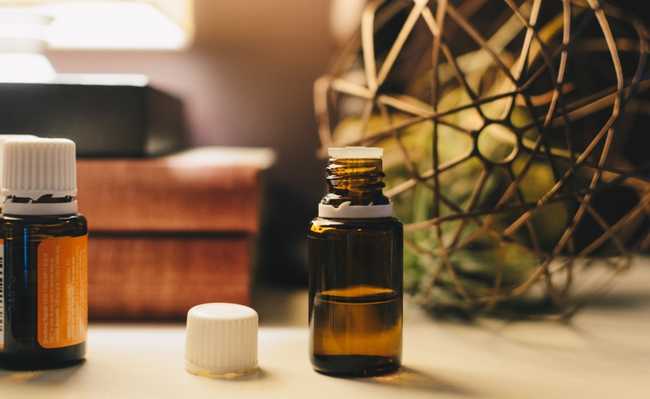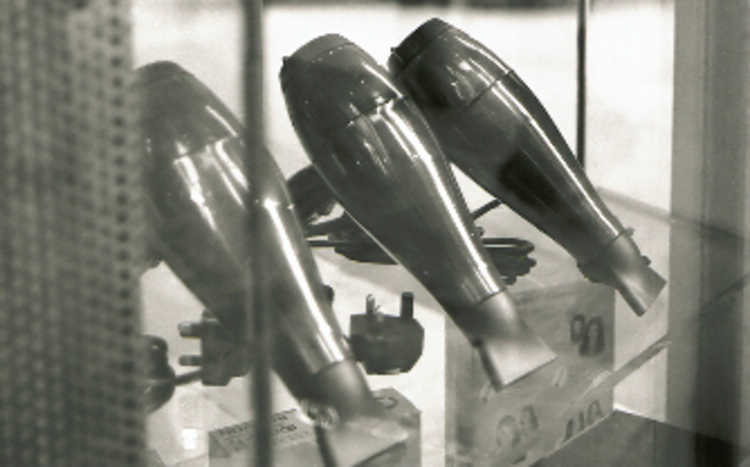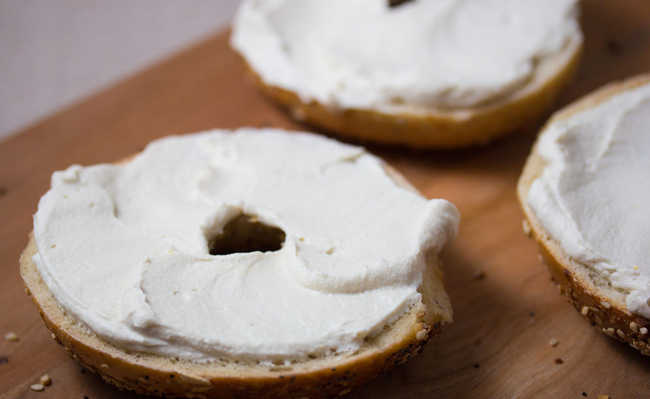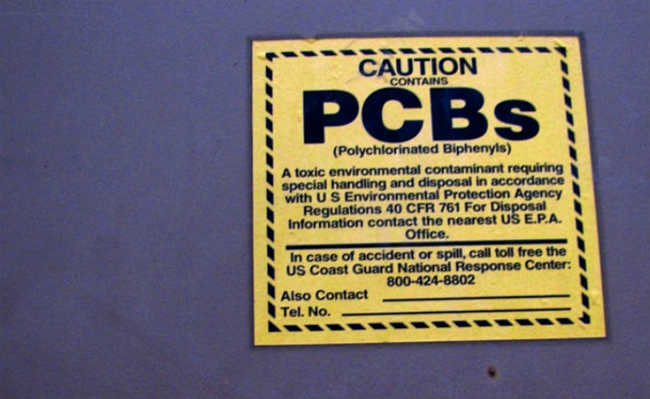Peppermint Essential Oil: 25 Benefits
Peppermint essential oil unclogs the nasal passages, energizes, is good for the hair, among other benefits

Image: Essential oil, by Kelly Sikkema available on Unsplash
Peppermint essential oil has several uses, and can be ingested and used on the skin to soothe, relieve muscle pain, fight bacterial infections, among other benefits.
- What are essential oils?
Peppermint Essential Oil Benefits
1. Relieves muscle pain
Peppermint essential oil is a very effective natural pain reliever for muscle relaxation. It can be used to soothe back, muscle and head pain.
One study concluded that topically applied peppermint essential oil helps relieve pain associated with fibromyalgia and myofascial pain syndrome.
2. Unclog the nasal passages
Inhaling peppermint essential oil helps to unclog the nasal passages and relieve inflammation in the throat. Peppermint acts as an expectorant and can provide relief from colds, coughs, sinusitis, asthma and bronchitis.
3. Relieves joint pain
Applying some peppermint essential oil mixed with lavender essential oil helps relieve joint pain.
4. Reduces binge eating
Inhaling peppermint essential oil helps to ward off hunger, providing a feeling of satiety. You can apply a few drops of peppermint essential oil in a diffuser at dinnertime, or apply a few drops to the temples or chest.
5. Natural energizer
For a non-toxic alternative to dangerous energy drinks, add a drop of peppermint essential oil to a quart of juice or tea. It brings spirits and can help those with chronic fatigue syndrome by improving focus and concentration.
6. Improves hair appearance
Add two to three drops of peppermint essential oil to your shampoo and conditioner to stimulate your scalp, energize your mind, and wake up. As a powerful antiseptic, peppermint can also help remove dandruff and lice.
7. Relieves allergy
Peppermint essential oil is effective in reducing allergy symptoms caused by inhaling pollen. That's because it helps to clear the nasal passages.
8. Helps you focus
Spray some peppermint essential oil on your child's shirt before study time or place a drop on their tongue or under their nose to improve concentration and alertness.
9. Relieves itching
If you're fighting itchiness caused by contact dermatitis, apply some peppermint essential oil mixed with lavender essential oil to relieve the itching.
10. Reduces fever
Peppermint essential oil is an excellent natural treatment for reducing fever, especially in children. To do this, mix three drops of peppermint essential oil in a tablespoon of coconut oil and apply to the neck and soles of the feet.
11. Natural repellent
Ticks aren't the only insects that hate peppermint essential oil. In fact, ants, spiders, cockroaches, mosquitoes and even lice are repelled.
A study published in Israel showed that mosquito repellent all-natural essential oil - which is a blend of essential oils of cinnamon, eugenol, geranium, peppermint and lemon balm - it is an excellent natural repellent.
Another study showed that peppermint essential oil protects against mosquitoes for 150 minutes with just 0.1 mL of essential oil applied to the arms. The researchers noted that after 150 minutes, the effectiveness of the peppermint essential oil diminished and had to be reapplied.
12. Improves skin inflammation
Peppermint essential oil helps relieve skin inflammation. The blend of mint and lavender essential oils can also improve eczema and psoriasis when applied topically.
13. Helps treat acne
One of the best uses of peppermint essential oil is application to the skin to treat pimples. That's because peppermint essential oil has antimicrobial properties, making it an excellent home remedy.
14. Relieves headache
Peppermint essential oil has the ability to improve circulation, calm the intestines and relax muscles. All of these properties help reduce headaches.
A study by researchers at the University of Kiel Neurological Clinic in Germany found that a combination of oils, including peppermint essential oil, had "significant analgesic effect with a reduction in sensitivity to headaches." Oils were applied to the forehead.
15. Helps hair to grow
Peppermint essential oil is used in many high quality hair care products because it helps to naturally nourish damaged hair. To do this, just add a little peppermint essential oil to your shampoo to help reduce hair loss.
- How to make hair grow fast and naturally
16. Relieves sunburn
Peppermint essential oil can moisturize burned skin and relieve the pain of sunburn. You can mix peppermint oil with some coconut oil and apply it directly to the affected area, or make my homemade natural tanning spray to relieve pain and support healthy skin renewal.
- What to spend on sunburn?
17. Improves irritable bowel syndrome
Peppermint essential oil taken in capsule form has been shown to be effective in the natural treatment of IBS (Irritable Bowel Syndrome). One study found a 50% reduction in IBS symptoms, with 75% of patients using it.
18. Improves swelling and indigestion
Peppermint essential oil is a natural alternative that can replace drugs like Buscopan to relax the muscles in the intestines, which can also reduce bloating and gas. Try drinking peppermint tea or adding a drop of peppermint essential oil to your water before meals.
19. Improves breath and reduces cavities
Peppermint has been used for over a thousand years to naturally freshen the breath. According to studies, peppermint essential oil performed better than mouthwash chemicals with chlorhexidine in reducing cavities.
You can make homemade toothpaste, mouthwash, or add a drop of peppermint essential oil under your tongue, followed by a glass of water, as this also refreshes bad breath.
- How to get rid of bad breath naturally
20. Reduces seasickness
One study has shown that peppermint essential oil helps reduce chemotherapy-induced nausea and has better effects than standard medical care. To do this, add a drop of peppermint essential oil to the water or rub one to two drops behind the ears.
- Seasickness Remedy: 18 Home Style Tips
21. Respiratory benefits
Peppermint essential oil has the ability to open the airways and acts as a natural decongestant. To do this, mix the peppermint essential oil with coconut oil and eucalyptus essential oil and make a homemade steam (add five drops of the essential oil in a bowl of hot water and inhale the steam) to reduce the symptoms of asthma and bronchitis .
22. Improves colic
Medical research has shown that using peppermint essential oil is effective for treating childhood colic without the side effects associated with prescription drugs.
23. Relieves pain in babies teeth
Peppermint essential oil is a great natural remedy for relieving pain associated with teething in babies. To do this, mix peppermint essential oil with coconut oil in a proportion of one to one and rub into the gum area.
24. Balances hormones and relieves symptoms of Polycystic Ovary Syndrome
Peppermint essential oil can have hormonal balancing effects and be therapeutic for polycystic ovary syndrome.
25. Helps cancer treatment
Clinical research indicates that peppermint contains the compound menthol, which inhibits the growth of prostate cancer. In addition, studies have found that peppermint has protective effects against radiation-induced DNA damage and cell death.
Side effects
Peppermint essential oil is safe when taken orally in amounts commonly found in food and when used topically. However, ingesting peppermint essential oil can cause side effects for some people, including heartburn, redness, mouth sores, and headache.
Some prescription drugs and over-the-counter medications can negatively interact with peppermint essential oil. Enteric-coated peppermint essential oil supplements can cause rapid dissolution, leading to heartburn, nausea, and rapid absorption of some medications. Take necessary precautions.
The following drugs have a "moderate" potential to interact with peppermint essential oil:
Neoral, Sandimmune, Elavil, Haldol, Zofran, Inderal, Theo-Dur, Calan, Isoptin, Prilosec, Prevacid, Protonix, Diazepam, Valium, Soma, Viracept, Cataflam, Voltaren, ibuprofen/Motrin, Mobic, Feldene, Celebrex, Elavil, Warfarin/Coumadin, Glucotrol, Iosartan, Cozaar, Mevacor, Nizoral, Sporanox, Allegra, Halcion.
The following drugs have a “minor” potential for interaction with peppermint essential oil:
Over-the-counter antacids including Tums, Rolaids, Ripan, Bilagog, Amphojel, Tagamet, Zantac, Axid, Pepcid, Prilosec, Prevacid, Aciphex, Protonix, Nexium.
Peppermint can even reduce iron absorption. If you take iron supplements and want to use peppermint essential oil, wait at least three hours apart. Peppermint essential oil also increases the absorption of quercetin when taken at the same time; wait at least three hours apart.










